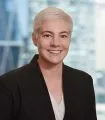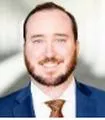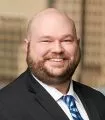- within Insolvency/Bankruptcy/Re-Structuring topic(s)
In This Issue:
- Q&A with Arnold & Porter PTAB Practitioner Nicholas M. Nyemah
- Q&A with Arnold & Porter PTAB Practitioner Joseph M. Galvin
- Notable Board Decisions
- Patent Owner Moves for Recusal and Vacatur Based on APJ's Financial Interests; Board Denies Motion. Palo Alto Networks, Inc., Cisco Systems, Inc., and Keysight Technologies, Inc., v. Centripetal Networks, LLC, IPR2022-00182, Paper 55 (PTAB Feb. 3, 2023)
- Board Rejects Petitioner's Collateral Estoppel Argument Based on Related Patent's Prior IPR Decision. Palo Alto Networks, Inc. v. Centripetal Networks, LLC, IPR2021- 01147, Paper 40 (Feb. 9, 2023)
- New Precedential Decision
- Director Designates as Precedential Board's Decision Denying Institution; Unsupported Expert Testimony Is Given Little Weight. Xerox Corp. v. Bytemark, Inc., IPR2022-00624, Paper 9 (PTAB August 24, 2022)
- Recent Director Review Decisions
- Director's Order Restores OpenSky as a Party and Imposes Monetary Sanctions. OpenSky Industries, LLC. v. VLSI Technology LLC, IPR2021-01064, Paper 127, (PTAB Feb. 3, 2023)
- Director Review Decision Involving Additional Discovery and RPI. Samsung Elec. Co., Ltd. v. Netlist, Inc., IPR2022-00615, Paper 40 (PTAB Feb. 3, 2023)
- Recent Federal Circuit Decision related to
PTAB
- Federal Circuit Precedential Decision: Deadlines for Institution Decisions and Final Written Decisions Do Not Apply to Further Director Review of Those Decisions CyWee Group Ltd. v. Google LLC, No. 20-1565 (Fed. Cir. Feb. 8, 2023)
- Upcoming Events and Speaking Engagements
How would you describe your practice?
We're talking about practice? Well, I was a practicing engineer before attending law school, and a lot of what I do as an attorney relates to my background in electrical engineering and computer science. While I've worked with clients across a variety of industries, a big focus of mine is on tech clients that provide consumer electronics, network and communication systems, and other computer-related services. Of course, anything that involves AI is huge right now, and it's cool to be a point person on that.
How long have you been practicing in front of the USPTO and in front of the PTAB?
I started my professional legal career at a Philadelphia-based firm, where I worked primarily on patent prosecution before the USPTO. I crossed over to Arnold & Porter in 2015, in part to focus more on patent litigation. PTAB litigation has been a significant part of what I handle here at Arnold & Porter.
Why were you interested in practicing before the PTAB, and how did you get involved in the practice?
I've worked with amazing clients, helping them to obtain patents and also to enforce their patents in district courts. Much of my career, however, has been spent on defense — representing clients that have been sued and accused of patent infringement. In such cases, the PTAB presents a great opportunity to steal control of the litigation, and I got involved in PTAB practice to capitalize on that opportunity. So much of winning depends on what happens off (or outside of) the court. The PTAB provides a less expensive and often more favorable alternative to court, allowing clients to score wins and carry on with their innovation.
How would you like to grow your practice before the PTAB?
Arnold & Porter has been quite successful at the PTAB, and it is quickly becoming known as a number-one firm when it comes to drafting IPR petitions and patent owner responses. We have a wealth of PTAB experience at the partner level and an incredible amount of talent among our associates. The nature of PTAB proceedings, along with USPTO programs like LEAP, allows junior practitioners to gain substantive experience early and have rookie-of-the year starts to their careers. I'm really excited about assisting our associates on PTAB matters as the firm's PTAB practice continues to grow.
What do you enjoy about practicing at Arnold & Porter?
The people at Arnold & Porter are the most valuable aspect of the firm. I work with so many all-star teammates who come through in the clutch and who are always willing to share their wisdom. Whenever I have a question about anything, I don't have to look far to find the answer.
What do you like to do in your spare time?
I suppose this is where I mention my appearance on Arnold & Porter's TMT Time podcast Law and Hip-Hop. Check it out to hear me rap it up about rapping it up. Beyond that, I love playing games with the family, cheering on my alma maters (UCLA and Georgetown), and making as many Allen Iverson references as I can in response to practice-related questions.
How would you describe your practice?
I focus my practice on intellectual property matters, particularly patents, trademarks, and trade dress. My practice covers a wide variety of topics from apparel, exercise technology, and personal electronics and their components. I spend most of my time on district court litigation, ITC matters, and inter partes review matters before the PTAB. I have also helped perform analyses of patent portfolios for clients and their competitors.
How long have you been practicing in front of the USPTO and in front of the PTAB?
I have been assisting patent-barred attorneys for two years in front of the PTAB and am in the process of waiving into the patent bar as a former primary examiner.
Why were you interested in practicing before the PTAB, and how did you get involved in the practice?
I wanted to practice before the PTAB in large part because of my over eight years as a patent examiner at the USPTO. The effort to invalidate patents before the PTAB marries the skills learned as an attorney with those I honed at the USPTO.
How would you like to grow your practice before the PTAB?
I would like to continue to gain experience and expand my role in front of the PTAB. When I am fully admitted to the patent bar, I hope to help with not only the written portion but also with the deposition of expert witnesses.
What do you enjoy about practicing at Arnold & Porter?
I really enjoy working with people who view the legal process as a team—all working together toward the same goal for our clients. The people around me are always eager to help me understand issues that are new to me, while also giving me a chance to voice my opinions on the matter.
What do you like to do in your spare time?
I remember what it was like to have spare time to play golf, but I have a three-year-old and a four-month-old who have decided my spare time is actually their time. Now, when I'm not being taught about the intricacies of garbage, fire, and/ or construction trucks, I can be found perfecting my magnet tile skills.
Notable Board Decisions
Patent Owner Moves for Recusal and Vacatur Based on APJ's Financial Interests; Board Denies Motion, Palo Alto Networks, Inc., Cisco Systems, Inc., and Keysight Technologies, Inc. v. Centripetal Networks, LLC, IPR2022-00182, Paper 55 (PTAB Feb. 3, 2023)
On February 3, the Board denied the patent owner's motion for recusal of the APJ panel that had decided earlier joinder and institution decisions and vacatur of those decisions. The Board's decision comes after the Federal Circuit's prior vacatur of a $1.9 billion damages award to the patent owner in district court litigation concerning overlapping patents because the presiding judge was disqualified due to his wife's ownership of Cisco stock.
The patent owner pointed to the Federal Circuit ruling and argued that recusal of the APJ panel was necessary because one APJ owned stock in Cisco and earns retirement income from Foley & Lardner LLP (a firm that has represented Cisco in an unrelated space).
The Board rejected the patent owner's arguments based on the differing financial interest standards that apply to Article III judges and APJs. Article III judges are subject to 28 U.S.C. § 455, which requires them to recuse themselves when they are aware of a financial interest that could be substantially affected by the outcome of the proceeding. In contrast, APJs are subject to the Standards of Ethical Conduct for Employees of the Executive Branch, codified under 5 C.F.R. § 2640.202, which allows an APJ to own publicly traded securities of up to $15,000, or $25,000 if the securities are issued by an interested nonparty. Because the APJ's holdings in Cisco were below the threshold and his retirement income from Foley & Lardner was not shown to be disqualifying, the Board held the patent owner's arguments were "so lacking in substance" that "further baseless arguments directed at the Board, its members, or its process may be met with sanctions."
Board Rejects Petitioner's Collateral Estoppel Argument Based on Related Patent's Prior IPR Decision. Palo Alto Networks, Inc. v. Centripetal Networks, LLC, IPR2021-01147, Paper 40 (Feb. 9, 2023)
In a decision issued on February 9, the Board rejected the petitioner's contentions that collateral estoppel prevents the patent owner from arguing that the prior art does not teach various claim limitations. The petition challenges a patent that shares a specification with a great-grandparent patent that had been invalidated in a previous IPR.
In rejecting the petitioner's invitation to apply collateral estoppel, the Board relied on the facts that (1) the previous IPR applied the broadest reasonable interpretation standard (as opposed to the Philips standard) for claim construction and (2) though similar, the claim recitations between the two patents were not identical. While not addressed in the Board's collateral estoppel analysis, the Board also did not credit the petitioner's claim-construction argument that a term had received the same construction in the previous IPR. Instead, the Board conducted an independent merits analysis as to all issues, although it indicated that "where appropriate, [it would] consider the Petition's citations to the Board's [FWD in the previous IPR], which is part of the record."
New Precedential Decision
Director Designates as Precedential Board's Decision Denying Institution; Unsupported Expert Testimony Is Given Little Weight. Xerox Corp. v. Bytemark, Inc., IPR2022-00624, Paper 9 (PTAB August 24, 2022)
On February 10, the Director designated as precedential the Board's decision in Xerox Corp. v. Bytemark, Inc. The relevant holding in the Board's decision generally relates to the weight the Board will give to an expert declaration. The Board held that the declaration of the petitioner's expert "merely repeats, verbatim, the conclusory assertion for which it is offered to support" and thus "is entitled to little weight."
In the '624 IPR, the panel denied institution under § 314(a), writing that they were "not persuaded that Petitioner is reasonably likely to prevail with respect to at least one of the claims challenged in the Petition." The main deficiency in the petition involved two limitations that the petitioner's references did not explicitly teach and for which the petitioner wholly relied on the opinion of the expert. Regarding these limitations, the expert opined that a person of ordinary skill would find the limitations obvious based on the person's general knowledge and understanding. The expert did not, however, "cite to any additional supporting evidence or provide any technical reasoning to support his statement," and his declaration repeated the language of the petition verbatim.
The Board cited 37 C.F.R. § 42.65(a), which states that "[e]xpert testimony that does not disclose the underlying facts or data on which the opinion is based is entitled to little or no weight." The Board held that "the cited declaration testimony is conclusory and unsupported, adds little to the conclusory assertion for which it is offered to support, and is entitled to little weight." In further support of this holding, the Board relied on the Federal Circuit's holding in Upjohn Co. v. Mova Pharm. Corp., 225 F.3d 1306, 1311 (Fed. Cir. 2000), which held that "[l]ack of factual support for expert opinion to factual determinations, however, may render the testimony of little probative value in a validity determination." The Board wrote that unsupported and conclusory expert declarations are "particularly problematic in cases where, like here, expert testimony is offered not simply to provide a motivation to combine prior-art teachings, but rather to supply a limitation missing from the prior art." Because the Board gave little weight to the expert's testimony, and the petition wholly relied on that testimony to supply the missing claim limitations, the Board denied institution.
Recent Director Review Decisions
Director's Order Restores OpenSky as a Party and Imposes Monetary Sanctions. OpenSky Industries, LLC. v. VLSI Technology LLC, IPR2021-01064, Paper 127, (PTAB Feb. 3, 2023)
On February 3, the Director issued another order related to IPR2021-01064. This order comes after the Director's decision on October 4, 2022, that "Petitioner OpenSky Industries, LLC ("OpenSky") abused the inter partes review process in an attempt to extract payment from both Patent Owner VLSI Technology LLC ("VLSI") and Petitioner Intel, who was joined to the proceeding." In that decision, the Director additionally determined that OpenSky violated the Director's express orders and engaged in discovery misconduct and other unethical conduct. Based on OpenSky's conduct, the Director has now determined that it is appropriate to award attorney fees to VLSI for expenses related to addressing OpenSky's abusive conduct, including for the entire Director review process. The Director also vacated the portion of a prior order that dismissed OpenSky from the proceeding, thereby restoring OpenSky as a party.
In response to OpenSky's arguments, the Director outlined the statutory and regulatory authority for the Director's power to impose sanctions and the sanctions available. The Director explained that the monetary sanctions were not "fee-shifting" and were based on OpenSky's conduct during the proceeding, rather than on the merits of its petition. Accordingly, the Director did not extend the sanctions to OpenSky's related petitions that were not raised in the Director review process. The Director reserved judgment on VLSI's argument that OpenSky's attorneys were "jointly and severally liable" for the misconduct and the associated attorney fees.
Director Review Decision Involving Additional Discovery and RPI. Samsung Elec. Co., Ltd. v. Netlist, Inc., IPR2022-00615, Paper 40 (PTAB Feb. 3, 2023)
On January 5, the Director sua sponte initiated Director review of Samsung Elec. Co., Ltd. v. Netlist, Inc. after the patent owner (Netlist, Inc.) requested rehearing and POP review of the Board's decision granting institution. Prior to initiating Director review but after institution, the Board authorized the patent owner's motion for additional discovery on the issue of whether Google, Inc. is a real party in interest (RPI) or is in privity with the petitioner (Samsung Electronics Co., Ltd.). On February 3, the Director issued a decision granting the patent owner's Motion for Additional Discovery in part, denying rehearing, and remanding the proceeding to the Board to determine whether the petition is time-barred under 35 U.S.C. § 315(b).
The additional discovery requested by the patent owner sought to show that Google and Samsung had a close relationship and closely aligned interests in the outcome of the IPR. Of the patent owner's seven requests, most related to agreements and communications between Samsung and Google.
To determine whether additional discovery was warranted in the interests of justice, the Director weighed the factors outlined in Garmin Int'l, Inc. v. Cuozzo Speed Techs. LLC, IPR2012-00001, Paper 26, 6–7 (PTAB Mar. 5, 2013) (precedential). The Director granted six of the petitioner's seven requests and remanded the proceeding to the Board to determine whether the petition is time barred under § 315(b) because Google is an RPI or in privity with Samsung.
Recent Federal Circuit Decision Related to PTAB
Federal Circuit Precedential Decision: Deadlines for Institution Decisions and Final Written Decisions Do Not Apply to Further Director Review of Those Decisions. CyWee Group Ltd. v. Google LLC, No. 20-1565 (Fed. Cir. Feb. 8, 2023)
In CyWee Group. Ltd. v. Google LLC, the Federal Circuit held that the statutory provisions setting specific deadlines for institution decisions and final written decisions, 35 U.S.C. §§ 314(b) and 316(a)(11), do not impose "deadlines for any further Director review of those decisions."
In June 2018, Google filed two petitions for IPR challenging certain claims of CyWee's patents. Within three months of CyWee's preliminary responses, the Board instituted IPRs for each petition on all challenged claims. Thereafter, each IPR was joined by other parties. Because of the joinders, the Board extended its deadline for the final written decisions by one month. Within that month, the Board issued its final written decisions finding each challenged claim unpatentable for obviousness.
On appeal, CyWee argued that, not only did the Board have to institute the IPRs within the statutorily required three months of receiving CyWee's preliminary responses and issue its final written decisions within the time the statute contemplates, but that the Director must be able to review institution decisions and final written decisions (or have the opportunity to perform such review) within the statutory deadlines applicable to those decisions.
The court disagreed, finding that when the "Director has permissibly delegated to the Board the determination of whether to institute an IPR" and "the Board makes [its institution] determination within the § 314(b) deadline . . . the institution decision is timely, notwithstanding the possibility that the Director may later revisit that decision." The court further found that the Director properly prescribed regulations under § 316(a)(11) "requiring that the final determination in an [IPR] be issued not later than 1 year after" an institution decision is noticed (except that the Director may adjust that one-year deadline under certain circumstances). Accordingly, "the Board's final written decisions were timely under § 316(a)(11) — again, notwithstanding the possibility that the Director could have later reviewed those decisions."
Upcoming Events and Speaking Engagements
Upcoming 2023 PTAB Bar Association Annual Conference: The conference will be held in person March 8-10, 2023 at the Ritz-Carlton in Washington, DC with virtual and live stream options available. Conference topics and events will include:
- An afternoon with direct Administrative Patent Judge interaction (APJ Day)
- Panel discussion of issues before the PTAB
- The effective use of expert witnesses
- APJ insights and tips on practice before the PTAB
- IPR petitions and POPRs
- PTAB appeals and reexamination strategies
- The state of Section 112
- An appellate perspective
- Sessions on ethics, diversity, equity, and inclusion issues
More details and registration information can be found here.
Upcoming Patent Law Institute 2023: Conference on Critical Issues and Best Practices. Arnold & Porter partner Jessica Kaiser will be presenting on a panel with the focus: "A Look at PTAB Proceedings as We Enter Decade Two." Specific panel topics include:
- Latest statistics on PTAB proceedings
- Rise and fall (or not) of Fintiv
- Procedural and caselaw changes impacting PTAB practices
- Tips and insights for practicing before the PTAB
The April 27-28 conference in San Francisco and will be webcast live at www.pli.edu. More details and registration information can be found here.
Upcoming Virtual Patent Gateway panel discussion: Arnold & Porter partner Jessica Kaiser will be presenting on a panel on "PTAB Motion to Amend: A Niche Within a Niche." The panel discussion will focus on the trends and lessons learned by PTAB practitioners over the years and aims to provide practice tips for both patent owners and petitioners dealing with Motions to Amend.
The panel discussion will be on April 18 at 1:00 p.m. – 2:15 p.m. EDT via Zoom. More details and registration information can be found here.
The content of this article is intended to provide a general guide to the subject matter. Specialist advice should be sought about your specific circumstances.









